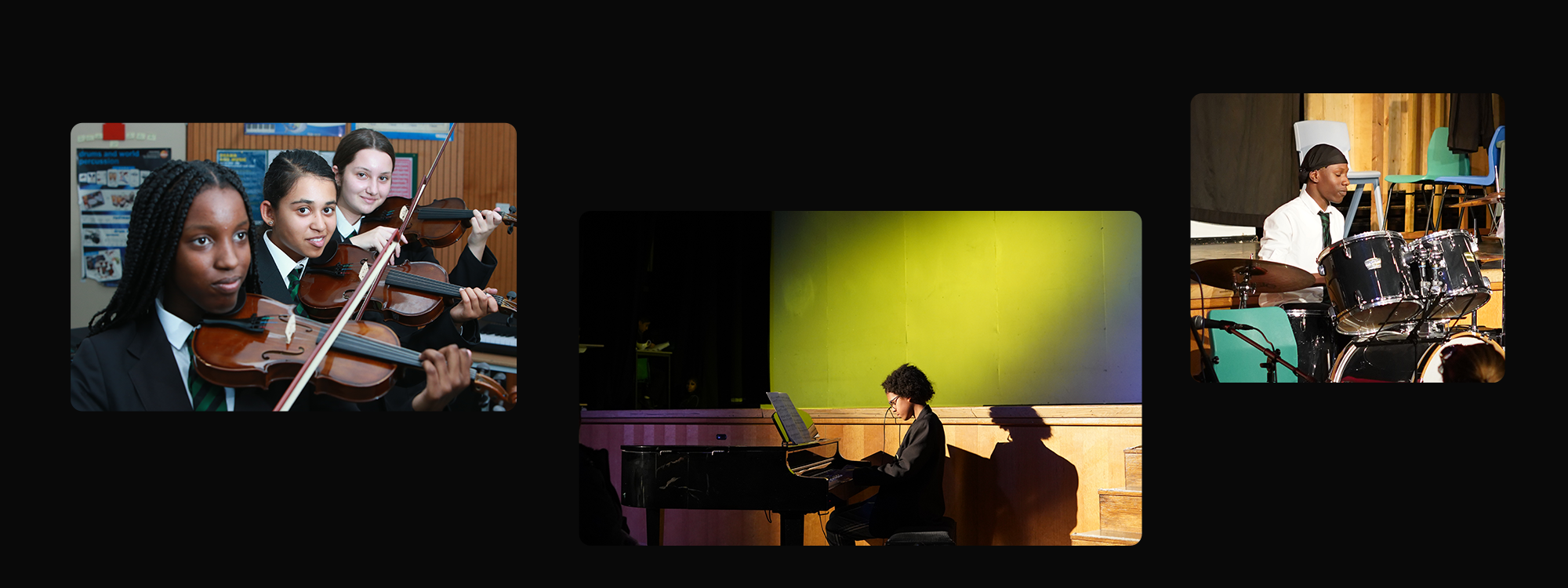- Home
- About Us
- Learning
- Music Curriculum Overview
"Research shows that at least some musical education has a positive impact on social and cognitive development of children and these effects are long lasting – better hearing, better motor skills, improved memory, better verbal and literacy skills."
Alan Harvey, Musician and Neuroscientist
Students will develop a love for Music through the three fundamental activities of musical participation - playing, composing and listening to music. At KS3 we are fortunate to be part of the MiSST (Music In Secondary Schools Trust) scheme which enables every student to learn an orchestral musical instrument for three years with their own instrument and professional instrumental tuition incorporated into the school curriculum. The skills and knowledge required to follow the MiSST Curriculum are challenging for any school cohort and contribute to the students’ acquisition of cultural capital.
GCSE Music is the obvious academic choice for those who enjoy performing, whilst Music Technology provides a musical outlet for those who prefer to create music via a computer. At KS5, there are several pathways possible: Music A Level for those who do well at GCSE, BTEC Music Performance and BTEC Music Technology for those who prefer a less academic route into music (and possibly Higher Education) and/or wish to gain relevant skills towards employment in the thriving, multi-faceted UK Music Industry.
Impact
- Students who thrive in the MiSST scheme have the opportunity to perform in orchestras with other schools, attend the Saturday MiSST Academy and even attend an intensive three-day residential course in the Summer Term. Beyond MiSST, however, all classes spend some time singing and studying basic keyboard skills, and most will have the opportunity to experience music technology in our Mac suite.
- To have had the experience of learning a musical instrument and, through that experience, learning to appreciate and understand a wide range of musical expression.
Implementation
-
All students should learn a new musical instrument starting in Year 7 and aim to achieve grade 2 at the end of their KS3 music education.
-
More able students will take 1 to 1 instrumental lessons to stretch and challenge their learning. Potential to learn more than one instrument.
-
Verbal feedback is provided in every practical lesson. A practical assessment is at the end of each term to check students’ ability to play the instrument.
-
Pupils’ progress in their individual lessons will be assessed by their peri teachers. They will then enter graded exams (ABRSM) when they are ready.




